Gogglebox, Dancing with the Stars and First Dates are some of the most popular and viewed tv shows on Irish - and indeed British - television in 2025.
Ahead of the Dancing with the Stars quarter-final tomorrow night, RTÉ's Arts and Media Correspondent Evelyn O'Rourke explores why Irish versions of international TV formats rate so well with audiences.
Gogglebox and Dancing with the Stars are home-grown versions of international formats, which have proven to be ratings winners.
The question arises how do Irish producers get their hands on globally successful programmes?
"It took me seven years to convince the BBC to allow us to do an Irish version," Larry Bass, CEO of Shinawil TV productions, noted as his team prepares for the quarter-final of Dancing with the Stars on RTÉ One tomorrow night.
"We are still here after eight seasons, so I think it proves its longevity," Mr Bass added.
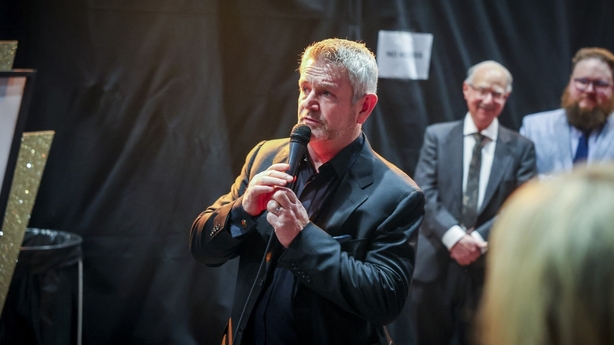
This year's Irish version of the international hit TV programme, originated by the BBC and based on the format of the British TV series Strictly Come Dancing, is proving to be an ongoing ratings success with audiences here.
Last Sunday’s episode had an average audience of 512,000 with a 43% share.
The eight episodes to date in this series have averaged 493,000 and a 41% share which is up on the 38% share of 2024 (Live plus viewed on the same day as live known as VOSDAL).
The show is based on an international format and is just one of a slate of heavy hitters across Irish television schedules that originated in other countries and for which tv companies have successfully translated on to Irish screens.
The TV formats are viewed as a form of intellectual property (IP).
With the buzz building around an Irish version of The Traitors - due on RTÉ Television later in the year - it is clear that while the online world has seemingly blurred borders, the appetite for programmes set in a familiar localised setting continues.
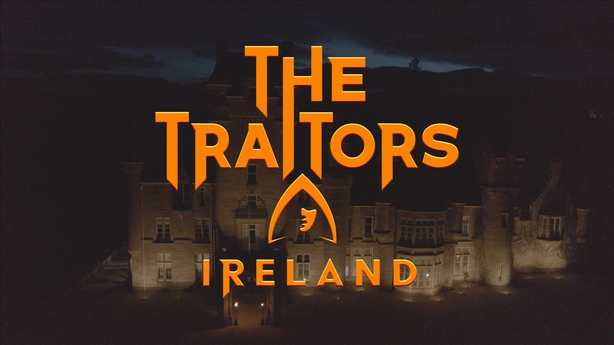
"It’s a bit of a beast, but any format worth its salt should be overwhelming at the start and then you find your groove," Darren Smith, CEO of Kite TV said, as his team is preparing season 11 of Irish version of the hit show Gogglebox.
Mr Smith is also knee-deep in the preparations for The Traitors, which is due to start filming in the coming months for RTÉ.
He said that Kite TV first came across The Traitors when they got a tip off from industry friends during the Covid-19 pandemic that "this was a show worth watching".
Created by producer Marc Pos, it seems hard to believe now, but it took Mr Pos himself six years to sell his traitors format.
Eventually he landed it on RTL4 in the Netherlands.
We need your consent to load this rte-player contentWe use rte-player to manage extra content that can set cookies on your device and collect data about your activity. Please review their details and accept them to load the content.Manage Preferences
Mr Smith explained that he was interested in the format from the first episode and that for companies, such as Kite TV, their success with the Irish format hit Gogglebox was significant in getting to produce the show.
The Gogglebox programme has been an audience favourite for Virgin Media Television since its first season in 2016 and it has made its way around the world to over 20 international broadcasters, who have made their own localised versions.
Proving their production credentials with a format at the level of Gogglebox "opened doors for us", Mr Smith noted, adding that "post getting Gogglebox on air, you are a company of interest".
Audiences have been watching people on couches, discussing tv programmes from as far away as Australia, Mongolia and South Korea since the programme was first unleashed onto Channel 4 in 2013 by Studio Lambert.
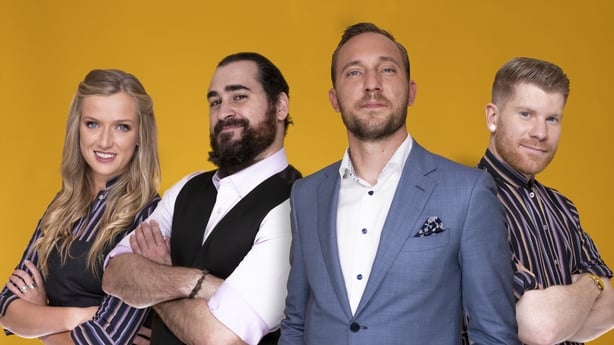
Another format that has proven a draw for Irish audiences is First Dates Ireland, which is made here by COCO Content.
It has been a key plank of their annual production schedule since 2016 and has provided 10 seasons and counting of love.
With this programme, COCO Content CEO Linda Cullen explains that RTÉ had acquired the format - which is often the case - and then they put it out for tender.
She said that COCO Content was determined to get the programme as "we loved it, we made Don’t Tell the Bride so, we really like fun in our place too".
"We had already been looking at optioning it, so we really wanted it and were delighted to land it," she explained.
Ms Cullen outlined the process of optioning, describing how everyone who has a show has a distributor.
"If a company is interested in getting an option on a show, they talk to the distributor and the distributors manage the negotiations with the original creators and in the case of First Dates, the distributors are Warner," she said.
She also mentioned that they are very, very keen to hear from men over 35 for the show, so do spread the word!
So you get the format, what happens next?
Once a company wins a tender to make a show, "what you are buying are the rights and all formats come with a production Bible, which tells you how to make the show, so you're actually getting the expertise as well as the rights when you acquire a format," Ms Cullen noted.
She said: "Then the busy part, you have to put it all together for your broadcaster.
"It's really important that you've got a crew who know exactly what they're doing and we've evolved over many years, so we're blessed with great crews here."
TV producers will tell you that there is always a risk with any new programme but the attraction of proven formats is that the original company has done much of the difficult and expensive development work, so by the time a broadcaster commissions a show, it carries fewer risks.
Creating formats
There is another side of the TV business too, where producers are always interested in creating formats that can travel beyond these shores.
A successful format is a golden opportunity for production companies, guaranteeing income and access to foreign markets.
Talking to Irish producers about the power of formats in their industry, they will all namecheck The Lyrics Board as the original model.
They speak with a little envy about its ongoing success, more than 30 years after the first piano keys were struck on the show on RTÉ.
So how did that show first come to life?
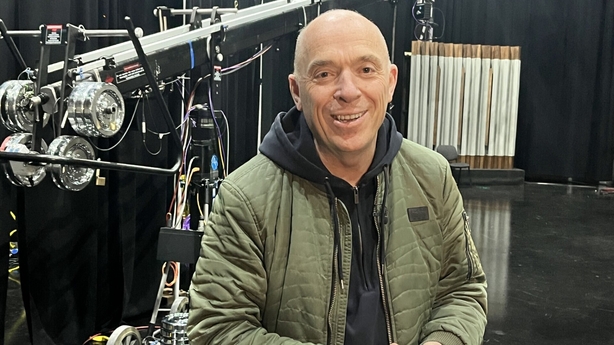
"I was at a dueling pianos bar in Texas and it struck us that this could be the core of an idea, focusing on a competitive sing-song, so myself and my friend, Andy Ruane, worked on the idea," co-creator Philip Kampff said.
Standing in Studio 1 in RTÉ’s Donnybrook campus, he recalls that they used to record four shows a night.
The Lyrics Board is essentially a structured sing-song, and when Andy Ruane and I did it the first time, we knew we were onto something," he said.
"We were just in our twenties but we decided to put our life savings into making a pilot, £3,000 or £4,000 and we handed the tape over and it started getting interest," he added.
He said that that they got their first slot on RTÉ after Today Tonight in June of 1992 for a short run.
They were told that as it was going out after a very serious current affairs show and so "there would be no dancing, no jazz hands and we to play it down, and it almost had to be sombre, like a parlour game," he laughs recalling the early days.
He added: "Luckily, we survived that season. It rated well and so we came into Studio 1, turned on all the lights and people danced and sang for years."
Then The Lyrics Board hit the road.
It has now been sold to 25 territories and has been running in some countries for more than two decades.
"Andy Ruane runs it through his company Like It Love It productions and he is hands on with international broadcasters to ensure it runs smoothly," Mr Kampff said.
He said that it is enjoyable when people "fly home from places like Thailand and Vietnam, and they say 'I couldn’t believe when I was watching the telly, and I saw what looked like The Lyrics Board".
When pressed about the financial success of the show, Mr Kampff merely smiled and said: "It’s been very good to us over the years. It certainty took the pinch out of being freelance TV producers."
Tax credits
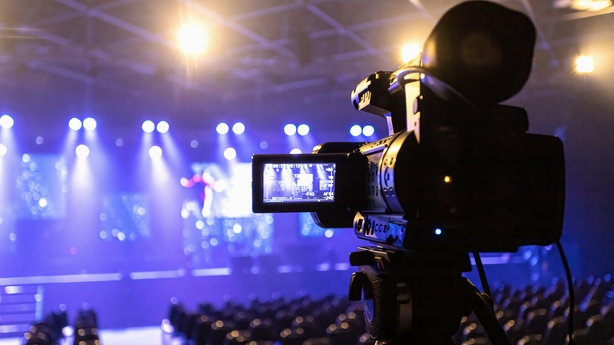
In the budget for 2025, there was confirmation that the previously proposed tax credit for unscripted production would now be included.
The Government stated that it would now be formally introduced "in order to maintain momentum and expand the breadth of the Irish industry".
Anthony Muldoon, Director of Strategy for Screen Producers Ireland, said that "the unscripted production tax incentive is designed to lower the cost of producing this kind of content in the country, by offering a tax credit of up to 20% on eligible expenditure".
He points out that the tax credit will have to go through several stages to be finally included and that the measure has been introduced subject to commencement orders, pending receipt of State aid approval from the European Commission.
The industry here will be hoping for its smooth passage.
"Am I 15?" – Nadine Coyle from Popstars.
For Larry Bass, he recalls his early days in television production 23 years ago when "I didn't really even know what a format was".
He said that he was in America at a TV event when he "bumped into this conversation about a format in the US".
Mr Bass said: "That format was Popstars, which is a show that was first originated in New Zealand and I was sitting in a room listening to this show, thinking Louis Walsh would be good judge in this.
"We've been a country that's been obsessed with music, so why wouldn't that show work in Ireland?"
The format business was new at the time, but he said that over the years, the UK has been very successful in this area.
Mr Bass added the 2003 Communications Act helped.
"It led to a change in ownership of rights in the UK, which allowed producers to actually own the rights and the shows they created, leading to a secondary market for taking the show you create and actually then reselling it in other places," he said.
"That's where it really kicked off, with the ownership going to producers, so it made producers sweat the asset a bit better," he added.
Will AI generate format ideas that will sweep their human efforts to one side?
Darren Smith said where there is "lots of chatter around it, of course, I think the magic of unscripted TV is that at its core you turn up for the shoot and you don’t know what is going to happen, the participants choose the ending".
Mr Smith said the with future episodes of The Traitors, he does not know "if they are going to pick a faithful for example, which will upend the narrative".
"So the human dimension is the power here … just as I don’t see AI as a threat to sport too as nobody knows the ending".
He added: "In my small corner in the entertainment forest, I am just a squirrel, and I am happy with the way we are going."
But then, he said with a laugh "but we have all been wrong before".







